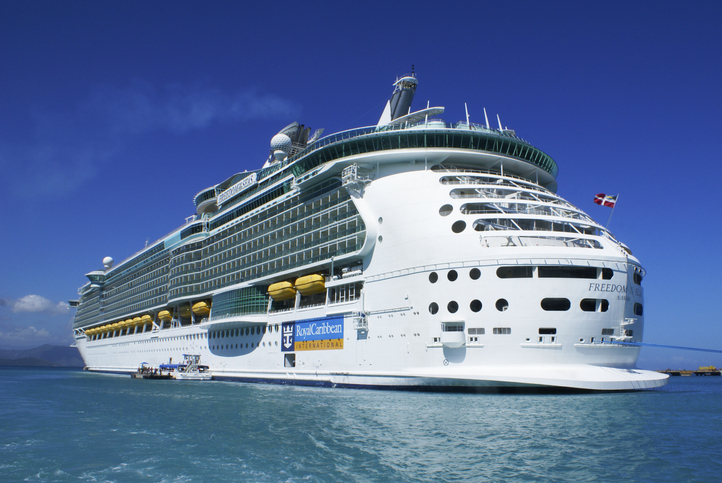Royal Caribbean Cruises Ltd said on Wednesday it was heading into 2019 with record bookings for cruises and seeing higher demand from Chinese tourists, sending its shares up as much as 7 percent.
A slowdown in the world’s second-biggest economy which has been flagged by several U.S. companies over the past few weeks, did not dampen demand, Royal Caribbean said.
Over half a million Chinese passengers sail with Royal Caribbean every year and the company said it was seeing rapid growth in tourists vacationing in Europe and Alaska.
The Miami-based company said 75 percent more Chinese guests opted for a non-China itinerary in 2019, compared to three years ago.
Rising demand, especially in the Caribbean, led the company to add four cruise liners to its fleet in 2018, including the world’s largest Symphony of the Seas. Demand from wealthier customers also prompted the company to take a majority stake in Silversea Cruises, adding ultra-luxury and expedition cruises to its offerings.
“Consumers are spending more on travel and experiences and the cruise industry is benefiting,” Ivan Feinseth, director of research at Tigress Financial Partners said. Tigress owns Royal Caribbean shares on behalf of clients.
“The all-inclusive nature and the broad itineraries … there’s just so much going on that cruises continue to grow in popularity.”
Overall, Royal Caribbean said it expects to raise total capacity by 8.6 percent in 2019, deploying just over half of those ships for Caribbean cruises.
The company said it expects adjusted first-quarter earnings of $1.10 per share, above analysts’ estimates of $1.06, according to IBES data from Refinitiv.
“This outcome should encourage those who watch on the sidelines concerned about weather politics, trade wars, supplies whatever,” Chief Executive Officer Richard Fain said, describing the company’s 2018 earnings.
But while demand for cruises on both sides of the Atlantic has been strong from North American passengers, Chief Financial Officer Jason Liberty said uncertainties surrounding Brexit were creating “inconsistencies” in demand in the United Kingdom.
The company’s total revenue rose 16.4 percent to $2.33 billion in the fourth quarter ended Dec. 31, edging past analysts’ average estimate of $2.31 billion.
On-board spending, an increasingly more important part of Royal Caribbean’s overall revenue, rose 16.5 percent as passengers spent more on entertainment activities like laser tag and dance classes.
Excluding certain items, the company earned $1.53 per share, ahead of estimate of $1.51.
The company’s shares were up 6.2 percent at $119.00 in early afternoon trade







